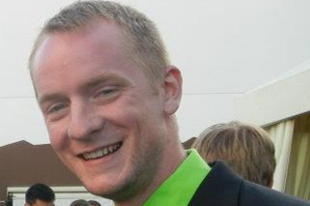Whitney Belt

Company: Ford
Position: Hybrid Electric Vehicle Calibration Engineer
What do you love the most about the Automotive Technology Program at SIU?
I loved the community feel of the Automotive Technology Program. Everyone is so welcoming and willing to lend a hand to help out if they see that you're having trouble running a test or using equipment. On top of that, all of the students and even the teachers are always talking and hanging out before and after classes. It helped make the college transition a lot easier.
How has the Automotive Technology Program prepared you for what you do?
I dual majored Automotive Technology with Mechanical Engineering, because I wanted to go into automotive product design and development. The Automotive Technology Program gave me hands on experience and a diverse background knowledge to be able to understand how different vehicle systems interact with and affect each other. All of the labs and classes also taught me the fundamentals of problem solving vehicle issues, the patience and perseverance to fix those issues, and the ability to work with others while doing all of the aforementioned steps. All of these qualities extend well beyond the realm of automotive diagnostics and also helped me obtain the position I have today.
Give us a snap shot of what you do everyday.
I just finished my Masters of Science in Mechanical Engineering at Purdue University and am in the Ford College Graduate rotational program at Ford Motor Company. My rotation is with the Electrified Powertrain Engineering group. They are responsible for developing all of the hybrid vehicles that Ford produces such as the C-MAX hybrid, the Fusion Hybrid, and the battery electric Focus. My first rotation was working on designing and diagnosing the high voltage controls for our current and next generation hybrids. My current rotation involves packaging all of the high voltage batteries and their respective modules into our next generation of hybrids. My average day involves using a Computer Aided Engineering program on my computer to model the vehicles and battery components, designing brackets and structures to contain all of these components, and meeting with engineers in other departments to discuss how our components affect each other and to discuss what changes we need to make.
Any advice for current and future students?
My first bit of advice would be to not be afraid to ask as many questions as you can think of. This will help you to fully grasp concepts and could lead to discovering things completely different than the original question, such as finding out that your teacher is an avid off-roader or that one of your classmates is in a pretty awesome bluegrass/rock fusion band.
My second bit of advice would be to join as many groups as possible, even if they might be in a different field. There are so many clubs out there ranging from sports to robotics to racing. You can learn so much from each of these different groups of people and can apply that knowledge to other situations in life. Also, the groups will quickly broaden the amount of people you know and experiences you encounter and allow you to make occupational connections through the various meetings and conferences that you attend.
